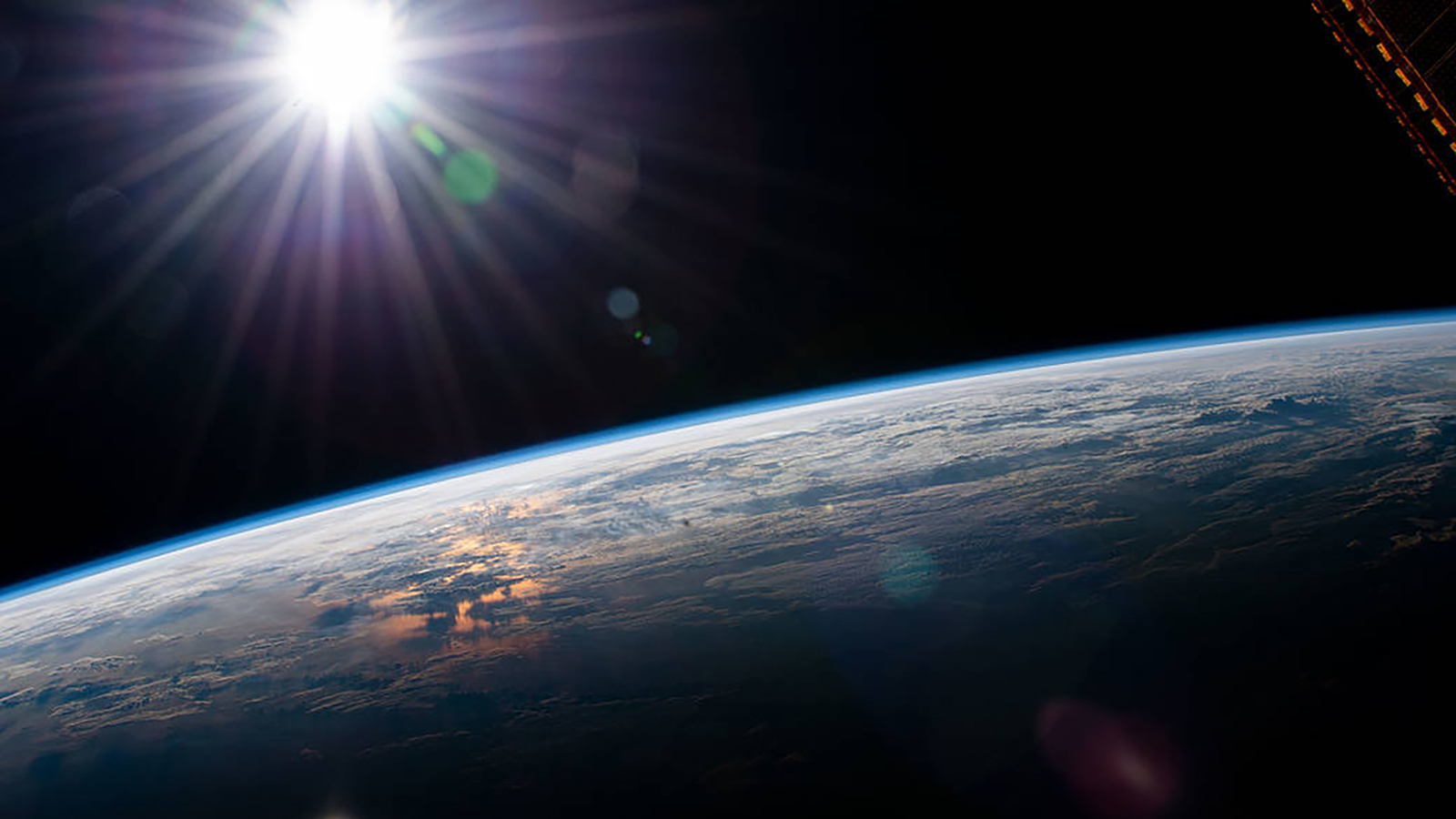Mirrors in the atmosphere are scary, say Utrecht University professors. To the displeasure of TU Delft colleagues, they argue for a ban on research into solar geoengineering.
Mirrors or aerosols in the stratosphere could cool down the earth. But it is not without risks. (Photo: NASA)
Turning down the earth’s thermostat could be done differently than by regulating the amount of greenhouse gas in the atmosphere. When the need arises, should we consider cooling the earth artificially with ‘wisps’ of minute particles or reflectors that reflect the sunlight? Solar geoengineering sounded like science fiction for a long time, but in recent years it has been the subject of ever more serious research.
You would think that it is a good thing to carry out research on a Plan B, but a group of 60 climate scientists view this differently. They argue for a ban on the research. The critics assert that solar geoengineering brings unacceptable risks.
“The risks of solar geoengineering are little understood and can never be fully known,” says Frank Biermann of the Copernicus Institute of Sustainable Development at Utrecht University and lead in this initiative. The group calls on academics, social organisations and concerned individuals to sign an open letter to governments, the United Nations and other organisations to stop the development and potential use of solar geoengineering worldwide. The initiative builds on a scientific article that appeared in WIREs Climate Change this week.
Biermann also expressed his concerns in an opinion piece (in Dutch) in the NRC newspaper which he wrote with his Utrecht University colleague Jeroen Oomen and Aarti Gupta, Professor of Global Environmental Governance at Wageningen University.
‘Solar geoengineering is delaying current climate policy across the world’
According to the critics, international institutions will not able to properly regulate the use of this technology worldwide. Their fear is that if only a small group of countries use the technology, it could come at the cost of other countries. The climate in one country affects the climate in its neighbouring countries. “Research into solar geoengineering is not the preparation of a Plan B to prevent a climate disaster, as the supporters believe,” continues Biermann, “instead, it will only delay and derail the current worldwide climate policy.”
The concerned scientists target the research into aerosols in particular. And that is precisely what Martin Janssens of the Geoscience & Remote Sensing Department and TU Delft alumna Iris de Vries, now at the ETH Zurich, are working on. They published an article entitled A specialised delivery system for stratospheric sulphate aerosols in Climatic Change magazine.
“The idea is to spray small droplets (aerosols) containing sulphate compounds into the stratosphere,” explains De Vries. “Similar particles are released into the top layers of air when volcanoes erupt and they cool down the planet. One of the questions we looked at is how to get the droplets there. You need aeroplanes that can fly at 20 kilometres altitude. This is a challenge as the air at that altitude is very thin. The aeroplanes would have to have huge wing surface areas.”
‘A dissenting voice keeps everyone on their toes’
De Vries and Janssens believe that this type of research is highly important. They do not want us to be empty handed if the Paris climate goals are not attained. “Please note that we are absolutely not saying that these technologies should be used,” says Janssens. We do not as yet know if the advantages weigh up against the risks. More research is needed for this.”
The TU Delft engineers recognise that there are risks to climate engineering. “So it is good to hear dissenting voices,” says Janssens. “It keeps everyone on their toes. You do not want countries to not do their best to reduce their CO2 emissions because they are pinning their hopes on climate engineering.”
De Vries, on the other hand, believes there could also be a reverse psychological effect in which people think that things really are getting serious if there are discussions about mirrors in the stratosphere. “They will then realise that we really have to do something about the greenhouse gases.”
The researchers believe that the perception that climate engineering may be unfair needs to be more nuanced. “Climate change is really unfair,” says De Vries. “It is impacting some parts of the world more seriously than others. So if we take action in the places where the need is the greatest, we can reduce the worst excesses of climate change. And this, of course, needs to be managed properly internationally.”
‘You don’t want to close the stable door after the horse has bolted’
Professor of Atmospheric Remote Sensing Herman Russchenberg agrees heartily. “It is far better to do research into climate engineering now than not do it. If you do not do it you will be closing the stable door after the horse has bolted. If other countries do do research and subsequently use it while you have stood by the sidelines, you do not have a leg to stand on. It is better to be involved internationally. This will reduce the chance that each country goes its own way.”
The effects of climate engineering are uncertain, admits Russchenberg too. “I certainly do not advocate starting to use aerosols today. We need to assess the technologies so that we can take well founded decisions later as to whether we will or will not deploy these types of measures. There are major uncertainties around the climate models. If we face higher temperatures in 2050 than expected, it would be good if we can take some action. That said, it would of course be a huge blunder to not focus on reducing CO2 emissions now.”
The three TU Delft engineers and their colleagues at the Universities of Utrecht and Wageningen are working on a response to Biermann and his supporters.
Do you have a question or comment about this article?
tomas.vandijk@tudelft.nl


Comments are closed.